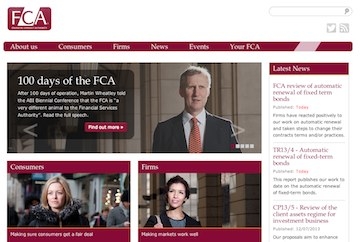One of the changes to client money rules affecting investment firms managing ISAs has been dropped by the FCA.
The regulator has decided to reconsider its proposal on unbreakable term deposits after consulting on reforms following the Budget.
The Chancellor George Osborne altered rules surrounding ISAs as part of his savings and pension overhaul in March.
The FCA is moving forward with the majority of proposals it consulted on last month.
The regulator's own changes on client money rules come into effect from today.
These are relevant to ISA managers who manage either stocks and shares ISAs or cash ISAs and hold, or wish to hold, those monies as client money.
{desktop}{/desktop}{mobile}{/mobile}
The FCA summarised the key amendments as:
• requiring all investment managers who hold any money within stocks and shares ISAs to hold these sums as client money
• allowing investment firms who manage cash ISAs to op-into the CASS regime and elect to hold money in cash ISAs as client money
Regarding its proposals for unbreakable term deposits, the FCA said: "Cumulative feedback has led us to reconsider this proposal and amend the final rules to ensure that investment firms that are ISA mangers will be subject to the rules that prevent them from placing client money in an unbreakable term deposit of greater than 30 days".
The FCA consulted on costs and said the response was a broad agreement that these were "proportionate and not burdensome on firms".
The FCA report stated: "Several noted the increased competition between firms would present positive outcomes for ISA customers, or that our proposals result in a level playing field in respect of ISA providers."
However, it said: "One respondent noted that investment firms that need to change their client money handling arrangements are likely to incur costs from entering into new agreements with their clients."
The FCA said all investment firms who manage ISAs or are considering managing ISAs should review the instrument set out in Appendix 1 in detail and establish how the changes we are making will affect their business.
For the full document click HERE.

